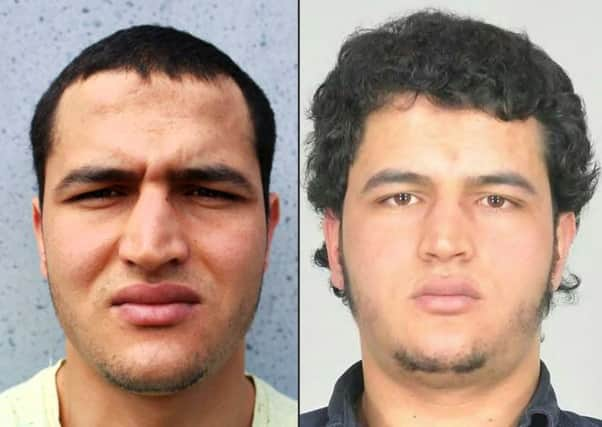Leader comment: Questions over freedoms for Europe


The war being waged against the west seeks not only to kill innocents, but to irrevocably change our way of life. From London and Paris to Madrid and New York, other cities targeted have had reason to scrutinise and defend values they hold dear. As yesterday’s events in Malta show, the spectre of extremism rears its head at this time of year, prompting searching questions as how we respond. The death of Anis Amri, the main suspect in the Berlin market attack which killed 12 people and left 49 injured, looks likely to bring an end to a fraught manhunt that spanned the continent, but the questions will reverberate for some time.
The emerging details about Amri have sparked an emotive domestic debate. At its heart is the dilemma of protecting freedoms while guaranteeing security.
Advertisement
Hide AdAdvertisement
Hide AdAmri, who went by five other identities, was known to German police and was under investigation for planning an attack. As recently as last month, counter-terrorism officers suspected he was involved in plotting “a serious act of violence against the state”.
After serving a prison sentence for vandalism and theft in Italy, the Tunisian travelled to Germany, where he applied for asylum. His request was rejected in the summer, but German officials were unable to deport him because he lacked valid identity papers and Tunisia initially denied that he was one of their citizens.
The sequence of events has prompted intense discussion about how he was allowed to remain in Germany. He is far from unique; it is estimated that around 160,000 people in the country have a similar status.
While the vast majority wish to make a better, peaceful life for themselves, the loopholes in the system have been widely publicised and it is inconceivable that other individuals intent in causing harm will not pose as asylum seekers.
The aftershocks of Monday’s event have already sparked calls for change. While Berlin has historically banned CCTV cameras from public spaces, legislation being pushed through by the government will allow for increased surveillance elsewhere in the country. Berlin’s authorities will come under extreme pressure to follow suit.
That pressure will manifest in many forms: some will be reasoned calls for heightened vigilance, others will be motivated by nationalistic insticts, seeking to make political capital out of an atrocity. Ordinary Berliners have endured a great deal over the past century. They can, and must, do so again.
The events of recent days will undoubtedly herald change, but if that change is necessary and proportionate, liberty need not be the latest casualty. Germany’s sense of freedom will be sorely tested in the days and weeks ahead, but the nation must find a way to protect what it cherishes most.